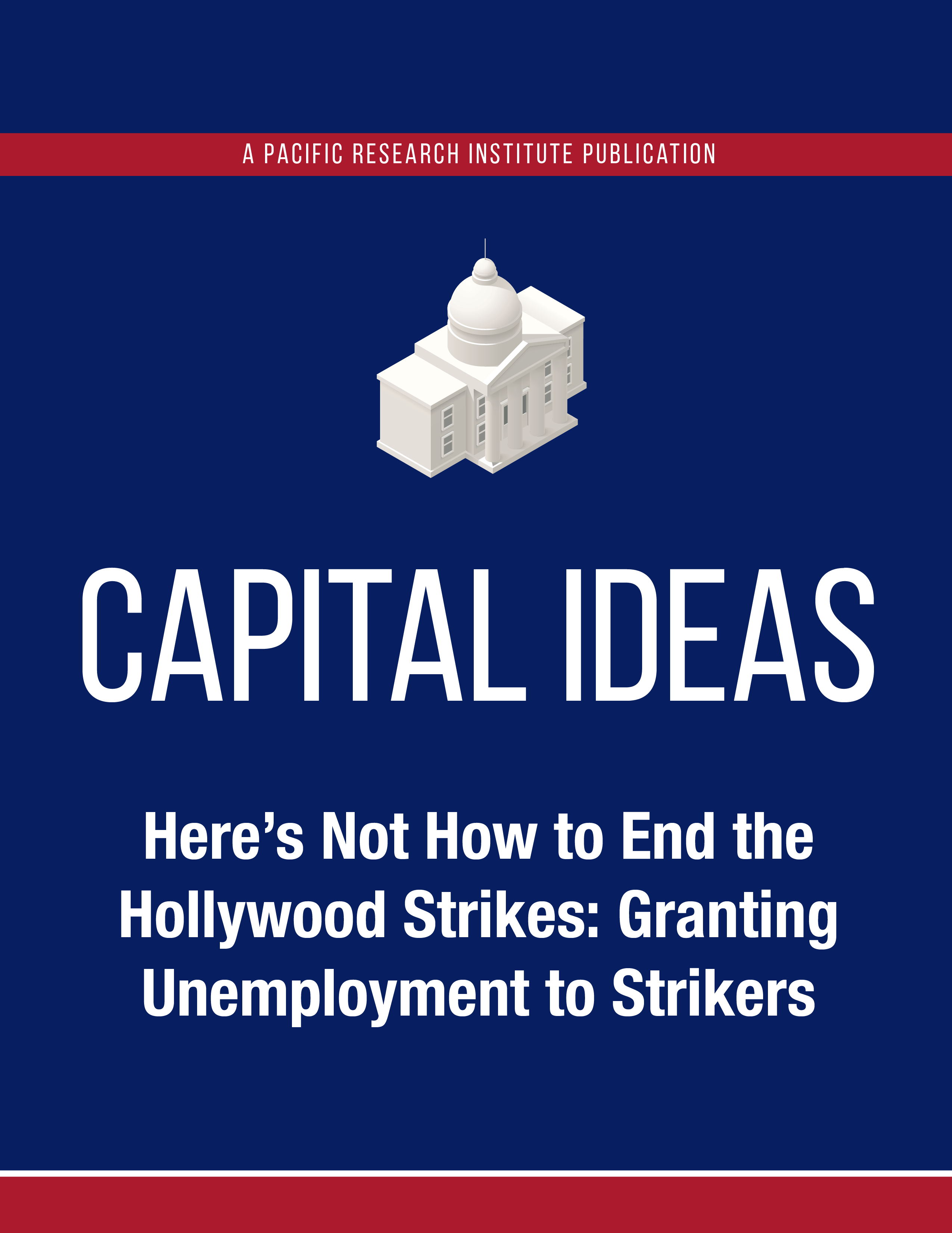With Hollywood’s strikes in the headlines daily and no end in sight, California Democrats are proposing legislation that would allow striking workers to draw unemployment benefits. If enacted, the bill would be a transparent gift to the unions that control California politics.
To be eligible for unemployment compensation under current law, recipients must have lost their jobs through no fault of their own. It’s a reasonable requirement. If workers could walk away from their jobs and still get paid for doing nothing, the incentive to work would be destroyed.
Naturally one of the ideas’ most vocal supporters is Lorena Gonzalez, the former Democratic Assembly member who authored job-killing Assembly Bill 5 and is now executive secretary-treasurer of the California Labor Federation. While still a lawmaker, Gonzalez tried to pass similar legislation in 2019.
Gonzalez says it “shameful” that the state doesn’t pay unemployment benefits to workers who voluntarily leave their jobs, much as she said in 2019 that striking workers deserve “a basic safety net to ensure they are not starved back to work by their employer.” But these are not workers whose jobs were eliminated and are desperately looking for employment. They willingly left jobs that will be there when the strike is resolved.
The Californians who do their jobs every day without government-granted union protection, who work under intense daily pressure to keep their small businesses open, who feel that employment and income should be based on merit and not association can’t identify with such a perverse assertion.
Never one to hold back her thoughts, Gonzalez is also grumbling about how “embarrassing” it is that California doesn’t “have unemployment insurance for striking workers,” as New York and New Jersey do. Yet those who still believe in the American work ethic and the virtues of meritocracy might say that it’s embarrassing that California wants to pay people to not work.
Those in favor of paying striking workers argue that, under the bill, employers would be no worse off since the legislation would merely shift money they’ve already paid into an unemployment fund to compensate workers who are not responsible for losing jobs. What happens when that fund is drawn down or even exhausted by paying benefits to striking workers? Of course unions will demand that the employers refill the fund, and their allies in Sacramento will make sure that they do. It’s a double dip by workers and a double hit on employers. Somehow this is considered fair and just.
Another hazard created by paying workers to strike is the prolonging of walkouts. The Hollywood strikes have recently passed the 120-day mark for striking writers. Imagine how much longer they would go on if strikers could collect unemployment?
This is not a conservative talking point but a consensus among economists. One of them, Larry Summers, an Obama adviser, is on record saying that unemployment insurance “extends the time a person stays off the job.”
“The existence of unemployment insurance,” according to Summers, “almost doubles the number of unemployment spells lasting more than three months.” But then “if unemployment insurance were eliminated, the unemployment rate would drop by more than half a percentage point.”
Summers doesn’t stop there. He goes on to identify “another cause of long-term unemployment” – unionization.
“High union wages that exceed the competitive market rate are likely to cause job losses in the unionized sector of the economy,” he says.
Research from a pair of Federal Reserve banks has likewise noted that “longer benefits may reduce unemployed workers’ job search efforts and raise their reservation wage, decreasing their likelihood of becoming reemployed.” When those “unemployed workers” are instead “striking workers,” the effect is a delay in the labor resolution that will hurt employers, which often is the objective of unionized labor actions.
Rather than try to wring more dollars out of employers, unions should beef up their strike funds. Let’s further suggest that rather than increasing members’ dues, the union bosses contribute to strike funds from their lavish salaries. They certainly have the money. The Center for Union Facts says that while 14.3 million union workers earn a total of almost $2.9 billion a year, just 190,000 union executives and officers make roughly $1.3 billion a year.
The Big Labor chiefs also make enough to close the pay gap between themselves and the rank and file. But they’d rather grouse about pay inequality between private-sector CEOs and workers. It provides them with far more political mileage.
Kerry Jackson is a fellow with the Center for California Reform at the Pacific Research Institute.


